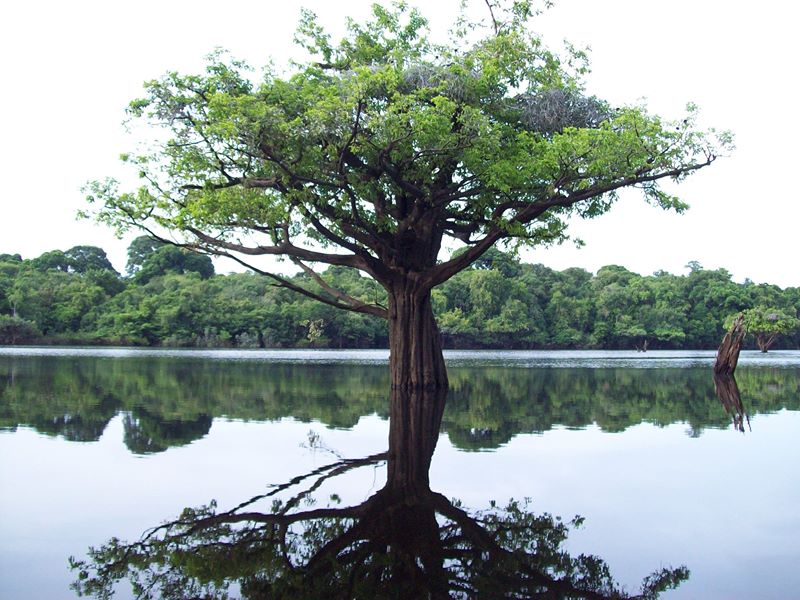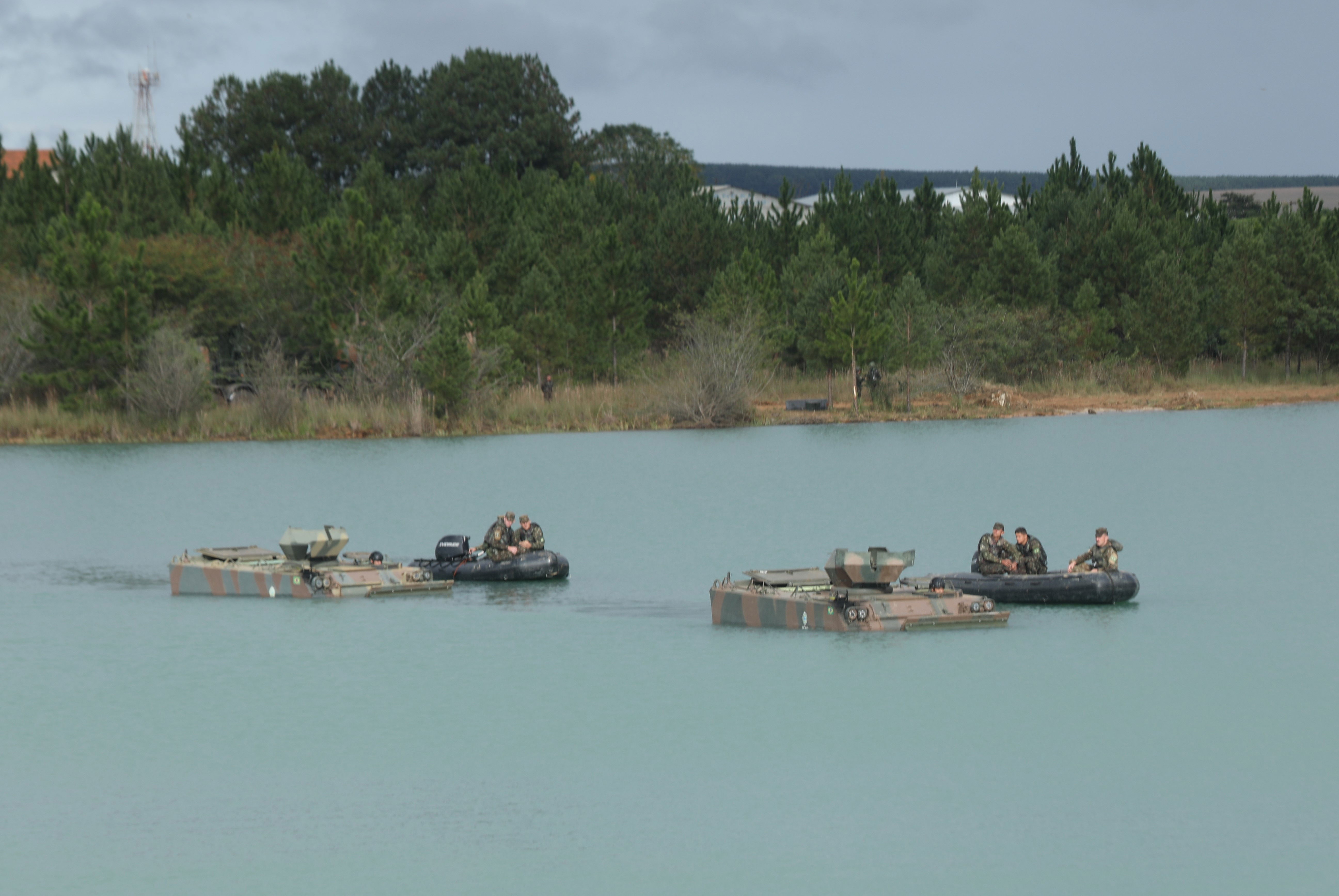Environmental and Climate Education in the Brazilian Army

By Coronel Raul Kleber de Souza Boeno (Ret.) *
The human losses and material damage resulting from the recent extreme weather events that occurred in Brazil, droughts in the North and floods in the South, cause commotion in different sectors of the population, as well as fuel debates about the climate crisis and its effects on humanity.
Public and private figures have debated the creation and inclusion of Climate Education in school curriculum. Experts from different areas have contributed to intensifying the debate on the topic, pointing out possible directions for the country's strategic decision-makers. In a simplistic way, one of the main points of polarization in the discussions is that some of the debaters support Climate Education in a “pure and emergency” way and the other part advocates that the topic be addressed in an interdisciplinary and transdisciplinary manner by the already established Environmental Education.
The objective of this brief contribution is to bring some reflections on this debate, showing the option adopted by the Brazilian Army, in the face of the climate issue in the educational area.
Initially, it is worth remembering that one of the legal frameworks for Environmental Education is in the Constitution of the Federative Republic of Brazil (Item VI, of § 1, of Article 255) and in the National Environmental Education Policy (PNEA - Law No. 9,795, April 27, 1999). Furthermore, the topic is also regulated by federal, state and municipal legislation, meaning, therefore, that any debate on this topic should be based on educational legislation, among others.
The climate issue has been debated on different agendas, including security and defense. Regarding the military sector's involvement with the climate issue, it is worth noting that the Ministry of Defense (MD), the body that coordinates the actions of the Brazilian Army, the Brazilian Navy and the Brazilian Air Force, is part of the Federal Government's policies. This means that the military sector carries out its activities in full alignment with government policies, including the National Climate Change Policy (Law nº 12,187, December 29, 2009).
However, the MD, a former member of the Interministerial Committee on Climate Change (CIMC - Decree nº 6263, 2007), by successive presidential decisions (Decrees nº 10,845, October 25, 2021; and Decree nº 11,550, June 5, 2023), ceased to be part of the CIMC. This denotes that the MD can be invited to participate in the CIMC, but cannot vote on interministerial decisions, including the development of sectoral plans on adaptation and mitigation of climate change, and also including in the educational area.
On the other hand, the recent inclusion of the MD in the National Commission for Sustainable Development Goals (Decree nº 11,704, September 14, 2023) is worth highlighting. This means that the MD will be able to contribute to the implementation of the 2030 Agenda in the country and develop actions aligned with Sustainable Development Goal Nr 13 (Combating Climate Change). As the MD has great national reach, these actions have the potential to be catalyzed by its members within society - as is the case, for example, of the 90 thousand young people who carry out military service annually and the 270 thousand who form the Professional Staff of the Armed Forces.

Photo: Brazil's navy Operation Rains 2022 – Pernambuco Source: Wikimedia Commons - Creative Commons Attribution-Share Alike 4.0
The Armed Forces have, by tradition, a historic commitment to protecting the environment, as demonstrated by Decree No. 14,273, of July 28, 1920, as well as the environmental quality of military training camps and areas under their responsibility. In the MD there is a reasonable number of institutional publications that provide procedures and guidelines for Military Organizations on climate and environmental issues. In this regard, it is worth noting that, particularly in South America, until the beginning of the 21st century, the situation (political, social, and economic) led to the discussion about the climate, almost exclusively for the environmental agenda. Thus, there are several institutional guidelines on climate change that are “sprayed” in environmental publications.
In the case of the Brazilian Army, the most relevant approach to Environmental Education is in the document called “Regulatory Instructions for Environmental Education within the scope of the Department of Education and Culture of the Army” (EB60-IR-57.011, Ordinance nº 01-DECEx, 31 of January 2019). According to these IR, Environmental Education must be developed in five approaches: Naturalistic, Operational, Legal, Socio-environmental and Defense and Security.
From the conceptual definition of these approaches (available here), it is clear that the climate issue can also be addressed at school in the same way, approaching and crystallizing what we initially classified as Climate Education.

Photo: 5th Army Division (Brazilian Army) integrating sustainability principles into military training. Paraná - 2024. Source: Cabo Onorato
One of the nerve centers of the climate issue is the difficulty in promoting a change in man's relationship with the environment, as well as making citizens aware of the sustainable use of resources provided by the environment (conscious consumption of the finiteness of resources, especially non-renewable sources) . This is in line with the very concept of Environmental Education, which is precisely to build individuals and a collective with social values, knowledge, skills, attitudes and competencies aimed at preserving the environment (a common asset for the people), essential to a high quality of life and its sustainability (PNEA).
IR-57.011 is one of the most complete guidelines that deal with the climate issue, from the perspective of Environmental Education, and its implications for security within the Brazilian Army (EB). Thus, all EB military schools that deal with assistance and preparatory education, training, specialization, improvement and higher studies can address the topic “climate change” through a transversal and interdisciplinary perspective in all their courses and internships. Annexes A and B of these IR deepen the debate on the climate issue and the militarization of disasters, as well as provide support for the topic to be worked on in the mentioned schools.
In addition to the aforementioned, it is worth remembering that other points need to be brought to the debate, such as the appreciation of teachers, the integration with Education in Risk and Disaster Reduction (ERRD), the increase in educational entities with training and expertise in sustainability, the promotion structural incentives for schools (solar energy and green spaces), the allocation of specific credit lines for schools, among other aspects with the potential to strengthen Environmental Education.
Thus, considering that the school is a vector of transformation of society and that the common denominator of Climate Education and Environmental Education is precisely the citizen's awareness of their relationship with the environment, particularly sustainability and conscious and responsible consumption, it is clear that the debate on the inclusion of Climate Education in school curricula requires further elaboration, and it is reasonable to infer that the Brazilian Army, since 2019, has already addressed the climate issue in all its schools, in a transversal and interdisciplinary way, under the shield of Environmental Education as an “awareness-raising tool”.
* Coronel Raul Kleber de Souza Boeno (Ret.) is former Head of the Civil Affairs Section (E9) of the 5th Army Division, where he followed the Humanitarian Aid Force Project. He holds a PhD in Climate Change and Sustainable Development (University of Lisbon), Political and Social Management of Risks and Emergency Situations (ENPC/Spain) and Strategic Intelligence (ESG/Argentina). He is also a graduate of the Military Academy of the Brazilian Army, MSc in Communications (UFPR)) and master’s’ degree in Military Operations (EsAO).
He is a member of the Global Military Advisory Council on Climate Change (GMACC) and a member of the Expert Group in the project on Climate and Security Action through Civil-Military Cooperation in Climate-Related Emergencies (Project CASA)
Article translated from the Portuguese – Original article published on 24 March 2024 by

https://eblog.eb.mil.br/w/educacao-ambiental-e-climatica-no-exercito-brasileiro
Top photo: Federal-level Anavilhanas National Park, located in Novo Airão (AM), Manaus (AM) - Carine Emer – Source: Wikimedia Commons - Creative Commons Attribution-Share Alike 4.0
Author(s): | Coronel Raul Kleber de Souza Boeno (Ret.) |
Publisher(s): | |
Publication Date & Place: | The Hague, 25 May 2024 |
Number of Pages: | 4 |